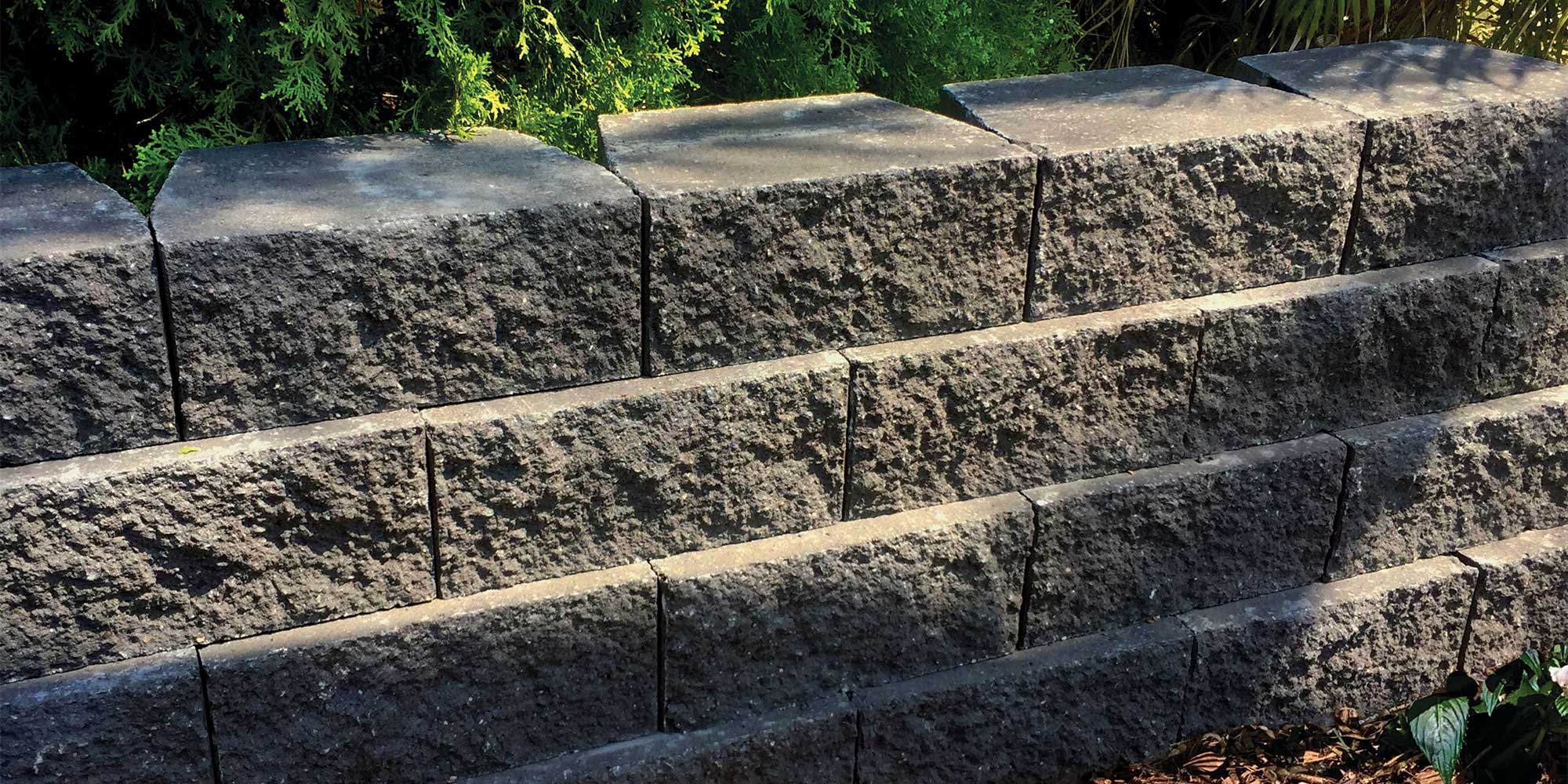Retaining walls are an essential part of your landscape design when dealing with a sloping site. These useful and attractive walls provide structural support that turns a steeply sloping area into a much more usable space, as well as providing flood and erosion control. Retaining walls do some heavy work in the garden – and thus need to be strong, durable and stable enough to provide the structural support your garden area needs.
So which type of retaining wall is the best choice when you need long-lasting and durable structural support in the garden? When you need a heavy-duty retaining wall structure, you need to know which material will hold up the most under pressure. Let’s examine the candidates.
What types of retaining walls are there?
There is a huge variety of options when it comes to retaining wall materials, and each has its different uses, benefits and drawbacks. While this is not an exhaustive list, here are some of the most popular retaining wall materials:
- Concrete block retaining walls
- Poured concrete retaining walls
- Timber retaining walls
- Natural stone retaining walls
- Brick retaining walls
- Gabion retaining walls
While each type does a good job, if you’re looking for strength in your retaining wall, there are some that do a better job than others. It’s wise to understand each different material and what qualities and benefits it offers.
Concrete block retaining walls
Concrete blocks interlock to create the retaining wall, thus providing supreme strength, structure and support. They are extraordinarily durable, and can often last for a century or more. They are usually supported on a base of compacted gravel, and will remain solid and strong even when you apply pressure to the wall. Using concrete blocks for your retaining wall will guarantee an extremely long-lasting and sturdy structure.
Poured concrete retaining walls
A poured concrete wall, although made from the same material as concrete blocks, will look nothing alike. In this type of wall, the concrete is poured into the correct position on the site and left to set. Both types of concrete retaining walls are strong and stable, but poured concrete has a slight edge in strength as the solid concrete is much more dense than concrete blocks. One slight caveat, however, is that solid concrete can be vulnerable to chemical damage, and may be susceptible to cracking with some kind of structural support (such as steel rods).
Timber retaining walls
While timber retaining walls can look very attractive, they are not as strong as stone or concrete, plus the wood will eventually rot away. A timber retaining wall will need to be treated properly for outdoor use to make it last as long as possible. As well, a timber retaining wall can be vulnerable to termites – meaning it’s unlikely to last as long as other types of material.
Natural stone retaining walls
Stone retaining walls usually blend seamlessly with the surrounding landscape. Stone is by nature a strong and sturdy product, and will last a long time in a retaining wall. When made well, a stone retaining wall is very reliable and can last for ages. It comes at a cost though – stone is one of the most expensive wall-building materials around.
Brick retaining walls
Bricks are low maintenance and reasonably durable, but cannot match concrete and stone in terms of strength. Bricks are generally smaller than stones or concrete blocks, and don’t come with an interlocking system to knit the wall tightly together.
Gabion retaining walls
You may not have heard of this one, but you’ve no doubt seen it! Gabion is a very old method of wall-building, and uses a wire or steel cage to create the structure. This is then filled with rocks, stones or rubble. Gabion walls are often used in commercial applications, and they are quite long-lasting and effective at preventing soil erosion. However, a gabion wall can move with the earth, and may not be the best choice if you’re looking for stability and strength.
Which type of retaining wall should I choose?
While there are many types of strong and durable retaining wall, the best options are easily concrete or stone. These materials are long-lasting, tough, durable and super strong, and can take care of supporting your site with ease.
To access the best range of concrete block retaining walls, visit National Masonry here.

